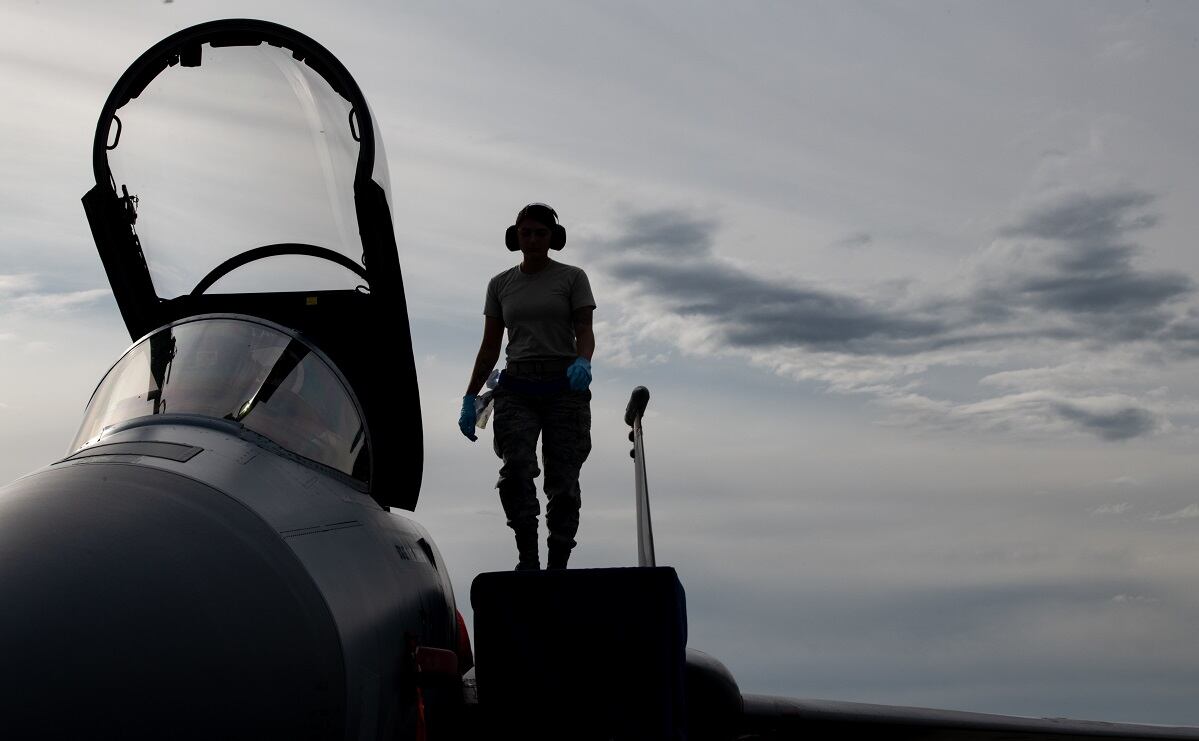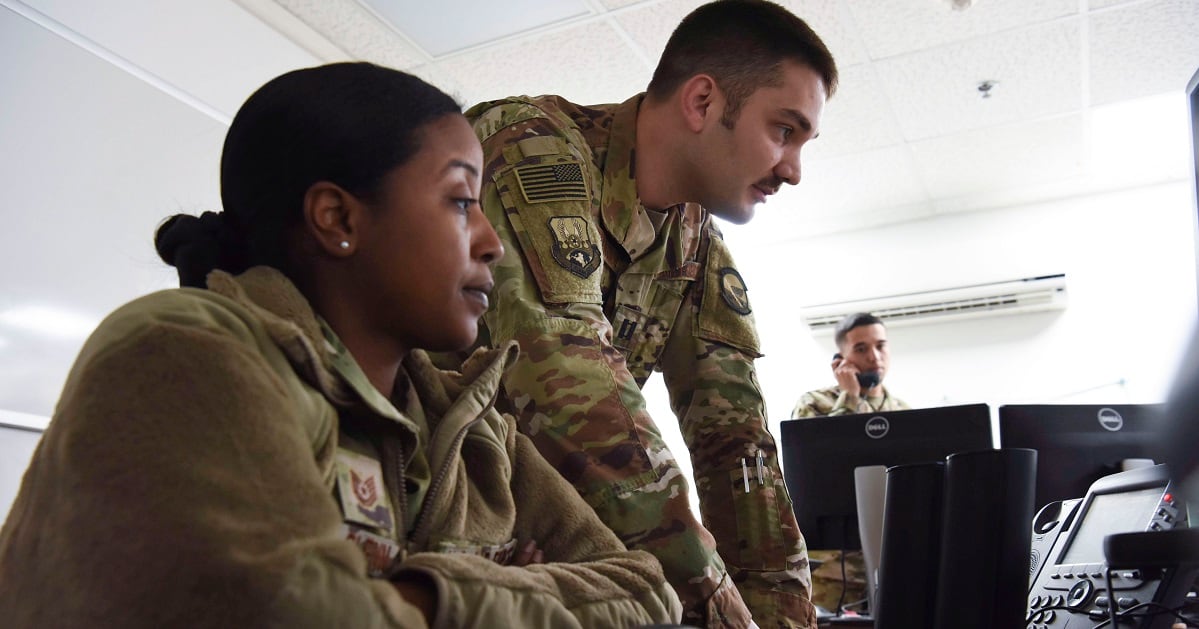A new Air Force panel will rethink how the service assigns airmen to new jobs, including for troops in complicated situations like dual-military relationships, Chief Master Sergeant of the Air Force JoAnne Bass said Monday.
“We’re about to have an assignment working group,” she said in a livestreamed question-and-answer session with Chief of Staff Gen. Charles “CQ” Brown. “What do we expect assignments to look like as we look into the future of our Air Force? What should assignments look like in 2030? We’re kind of backward planning.”
While Bass did not elaborate on the issues the group will tackle, she stressed the Air Force wants to make the assignment process more flexible and transparent. She pointed to her own experiences hashing out military assignments with her husband, Rahn Bass, a retired Army first sergeant.
“I felt like the [Air Force Personnel Center] was very transparent,” Bass said. “They will do everything that they can to ensure that families can stay together, to include sister services.”
That effort will go hand-in-hand with a new enlisted force development plan due out this summer to better shape the careers of those airmen. Career policy discussions come as the Air Force considers how to meet its combat and peacetime needs while improving quality of life for servicemembers and their families.
Service leaders anticipate a future without much growth in the total workforce. Some career fields are stretched thin by low staffing, high turnover, and a hectic operations schedule, while the Air Force faces record-high retention at the same time.
To balance out the force, the service has suggested allowing airmen to retrain into jobs that are hurting for people, as well as offering early separation and transfers into the Air Force Reserve.
RELATED

The service is also trying to adjust to the changing needs of military families, seeing more instances of troops marrying each other, couples where women are the military member, and families where both partners want to work.
Leaders have already begun tweaking some aspects of the assignment process, like growing its searchable online database of job opportunities, and better connecting airmen with bases where they most want to serve.
Earlier this year, the Air Force lengthened the amount of time airmen and Space Force guardians without dependents spend at certain bases overseas from 24 to 36 months. Stretching out those tours of duty at 21 locations is meant to bolster training and better integrate troops into the local community, the service said.
Brown likened the considerations to other personnel management changes the Air Force has rolled out, including a recent overhaul of the promotion system.
RELATED

“There’s going to be some folks that’ll get a little upset … but the key part is, what are we doing to ensure we are helping our airmen?” he said.
The service is also taking a fresh look at professional military education, Bass said, hoping to create good supervisors as well as good followers. Brown suggested there’s an opportunity for leaders to learn how to give their subordinates helpful feedback for better professional development.
Perhaps there are certain tasks the Air Force can move off of its plate because they aren’t unique to the service, Bass added.
“I think our manpower standards and how we look at managing manpowe need a relook as well,” she said. “Every unit can do that at their level.”
Rachel Cohen is the editor of Air Force Times. She joined the publication as its senior reporter in March 2021. Her work has appeared in the Washington Post, the Frederick News-Post (Md.), Air and Space Forces Magazine, Inside Defense, Inside Health Policy and elsewhere.




